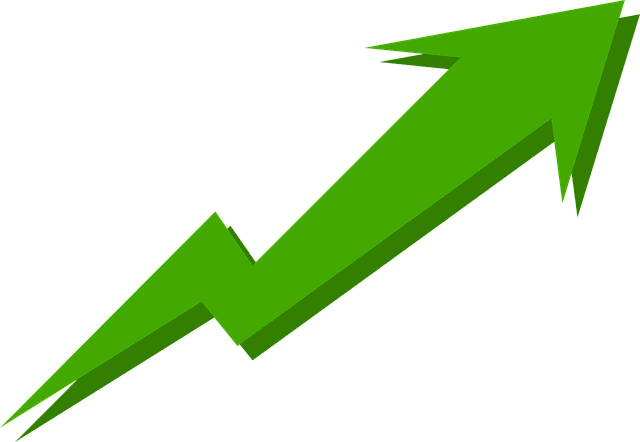The Intricacies and Impact of Bot Trading in Modern Finance
Author: Jameson Richman Expert
Published On: 2024-08-12
Prepared by Jameson Richman and our team of experts with over a decade of experience in cryptocurrency and digital asset analysis. Learn more about us.
In recent years, the rapid evolution of technology has transformed the landscape of financial trading. Bot trading, or automated trading, has emerged as a pivotal player in this arena. This article delves into the nuances of bot trading, exploring its mechanisms, advantages, disadvantages, and the ethical considerations that accompany its widespread adoption. I will also intersperse my personal opinions and reflections throughout the discussion to provide a comprehensive understanding of this phenomenon.

Understanding Bot Trading
At its core, bot trading refers to the use of algorithms and software programs to automate the process of buying and selling assets in financial markets. These bots operate based on pre-defined criteria and execute trades at speeds and frequencies far beyond human capability. The primary goal of bot trading is to capitalize on market inefficiencies and execute trades at optimal times to maximize profits. In my opinion, the sheer efficiency of bot trading is a fascinating testament to the engineering marvels of our time.
How Bot Trading Works
Bot trading comprises several key components that work in harmony to execute trades. The following are the essential elements:
- Algorithms: Algorithms are the backbone of trading bots. They analyze market data, identify patterns, and decide when to buy or sell an asset.
- Market Data: Bots rely heavily on real-time data from various sources, including price feeds, historical data, and news analytics.
- Execution: A centralized brokerage account is often used for executing trades based on the signals generated by the bot's algorithms.
- Backtesting: Before deploying a trading bot, traders often backtest their strategies using historical data to evaluate potential performance.
Each of these elements plays a critical role in the efficiency and effectiveness of bot trading. I believe that the significance of backtesting cannot be overstated; it is an essential step that instills a level of confidence before entering real markets.
Types of Trading Bots
There are various types of trading bots, each designed for specific trading strategies. The following are some popular types:
- Trend Following Bots: These bots capitalize on market trends by buying assets that are rising in price and selling those that are declining.
- Arbitrage Bots: Arbitrage bots exploit price discrepancies between different exchanges or markets.
- Market-Making Bots: These bots provide liquidity by continuously placing buy and sell orders, profiting from the spread between the two.
- News-Based Bots: These bots analyze news articles and feeds to identify trading opportunities sparked by events and market sentiment.
It's intriguing to see how diverse the approaches in bot trading can be, each tailored to capitalize on specific market mechanics. From a personal standpoint, I find the concept of news-based bots to be particularly compelling. In the fast-paced world of trading, the ability to react swiftly to news events can be a game-changer.
Advantages of Bot Trading
Bot trading has distinct advantages that make it appealing to both individual and institutional investors. Here are a few notable benefits:
1. Speed and Efficiency
One of the main advantages of bot trading is its speed. Bots can execute trades in milliseconds, capitalizing on fleeting market opportunities that human traders would miss. I think this is one of the most remarkable aspects of technology in trading; it allows investors to operate at a speed that previously seemed unattainable.
2. Emotional Detachment
Trading can often be influenced by human emotions—fear and greed being predominant factors. Bots, on the other hand, operate strictly based on data and algorithms, removing emotional decision-making from the equation. From my perspective, this objectivity can lead to more rational trading decisions.
3. Continuous Operation
Bots can trade 24/7 without the need for breaks or downtime. This constant presence in the market is especially beneficial in highly volatile environments or around significant global economic events. Personally, I appreciate the peace of mind knowing that a trading strategy can continue to function even when one is not actively monitoring it.
Disadvantages of Bot Trading
Despite the evident advantages, bot trading is not without its challenges and drawbacks. Understanding these limitations is crucial for anyone considering this trading approach.
1. Over-Optimization
One significant pitfall of bot trading is the risk of over-optimization. Traders might become so engrossed in fine-tuning their algorithms that they create models that perform exceptionally well on historical data but fail to adapt to future market conditions. I believe that this can lead to disillusionment and losses when the market deviates from the patterns the bots were trained on.
2. Technical Failures
Bots are susceptible to technical issues, whether it's software glitches, connectivity problems, or inaccurate market data. These failures can result in significant financial losses if not adequately managed. From a personal viewpoint, the potential for technical malfunction is a constant reminder of the importance of regular maintenance and updates of trading algorithms.
3. Market Manipulation Risks
With the prevalence of algorithmic trading, there are concerns regarding potential market manipulation through coordinated trading practices by bot operators. This raises ethical questions about the fairness and integrity of markets. I find it essential for regulators to keep a close watch on such practices to ensure a level playing field.

Ethical Considerations and Regulatory Landscape
As bot trading continues to evolve, it brings forth a host of ethical dilemmas and regulatory challenges that need addressing.
1. Transparency and Fairness
The asymmetry of information in bot trading can lead to an unlevel playing field, where those with advanced technology and resources dominate the market. I firmly believe that transparency is crucial in maintaining trust in financial markets, and there should be regulations ensuring fair practices.
2. Regulatory Frameworks
Different markets around the world have varying regulations on automated trading, and the rapid evolution of technology often outpaces regulatory responses. Governments and regulatory organizations need to create frameworks that account for the complexities of bot trading while still fostering innovation. In my opinion, proactive regulations can help mitigate risks while encouraging healthy competition.
The Future of Bot Trading
As we look to the future, it's evident that bot trading will continue to play a pivotal role in the financial markets. The integration of artificial intelligence (AI) and machine learning into trading algorithms holds great potential for creating even more sophisticated trading strategies.
1. Increased Use of AI
AI is already beginning to revolutionize the trading landscape. With the ability to process vast amounts of data and identify intricate patterns, AI-powered trading bots may soon surpass the capabilities of traditional algorithms. Personally, I view this advancement as thrilling, offering unprecedented opportunities for traders who can harness the power of AI effectively.
2. Ethical Considerations Will Shape Development
As the landscape of bot trading matures, continuous dialogue about ethical practices and regulations will be vital. Stakeholders must work together to ensure that technological advancements do not compromise market integrity. I believe that a focus on ethics will ultimately lead to a more robust and trustable trading environment.
Conclusion
In conclusion, bot trading represents a fascinating intersection of technology and finance. While it offers numerous advantages, it also comes with its challenges and ethical considerations. As we move forward, it is crucial for traders, developers, and regulators to engage in open dialogue about these issues to ensure a fair and sustainable trading environment. Personally, I find the evolution of bot trading compelling and look forward to its future developments, as long as they are guided by principles of integrity and fairness.